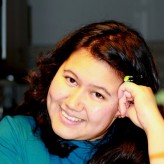
Plastic tube production at DMS
When we started with the Greening Plastic Project I was really thrilled with the prerequisite of Via Water to work with an attitude of open sharing. As an avid social media user I was sure it would not be a big burden to post regularly updates about our project. In reality however, I see I tend to prioritize actually working on my projects instead of chatting about them. And despite that there is a lot to tell, I just never get to penning it down. A missed chance, because I really believe that working openly and socially might really benefit our project if we are capable of attracting attention. So, this morning, I decided to just do it: write an update about the Greening Plastic Project. And I’ll try to post more regularly in the future!
So a lot has happened since we started the project and some changes in plans had to be made. We were also looking for additional funding, so I wanted to prioritize securing these funds before posting. The DAWCA funds are now secured and the project is getting up to speed. I was starting to worry that I was spending too much time on managing the project, but I’m starting to see that the time required for managing things is now also dropping, which means we are settling down in a nice working pace.
Today I will talk primarily about DMS: the small enterprise in plastic recycling which is venturing into a whole new market with a whole new product and related services. DIAW Multiservices SARL (DMS) started as a plastic recycling company, producing PE tubes. The company was initiated by the returned Migrant Mamadou DIAW, also called Karou. There was actually a documentary made about him and two other migrants who returned to Senegal from Italy. This documentary was created on initiative of our other partner LVIA, an Italian NGO. I don’t speak Italian, but with Google Translate you can get an idea of what is communicated.
• The documentary about our partner Karou: Demal te Niew (‘Go and come back’ in Wolof): http://speciali.espresso.repubblica.it/interattivi-2016/va-e-torna/index...
• An English article about the documentary: http://journalismgrants.org/projects/demal-te-niew-go-and-come-back
Product Development
DMS was already capable of making PE tubes, but is now specializing in creating drip irrigation kits from these tubes. Essentially the company is therefore transforming from a Multiservice company to an Irrigation specialist. Because of this, one of the first things they had to do was spend time on product development. Through trial and error some experiments were done to find out how product characteristics could be influenced during the production process. Several tests were done with various raw materials. Because of how irrigation pipes are used, you’d want a product which is relatively resistant to UV and doesn’t shear too easily. At the same time, you might want a certain flexibility in the tubes and you want a product which is as cheap as possible. One of the things which had to be tested for example was how much recycled material could be used relative to ‘virgin’ (new) plastic and what would the effect be for product properties.
From a market research and through experience it has become clear that there is no demand for a single, optimized product with set characteristics. Rather, different end-users have different product requirements. DMS is now basically able to make products on demand, which I think could turn out to be a comparative advantage for the company. Another interesting thing is that DMS says to be the only producer of recycled irrigation kits in Senegal and their product will be much cheaper than imported or new irrigation tubes.
First field tests
It is foreseen in our project that show-case sites will be installed, where farmers and other interested parties can see the irrigation kits at work. A first installation was already carried out in a private vegetable garden, which allowed to test the quality of the new product. The results were satisfactory: the tubes hold well under the pressure of the water. In how far they will resist the sun's rays however can only be seen after a longer period of time. The customer at least was totally satisfied, so that’s a good start.
For the show-case site, also some preparations have been made such as taking measure to estimate the amount of tubes required. The first show-case site will be installed at the premises of LVIA, where they can easily show the garden to any visitors or include the garden in capacity building activities in the agricultural domain.

Dear Cheryl,
Good that you have managed to find time to update us about the project. Nice to see that the first trial was succesfull with a satisfied farmer. Please share as well the Italian videos with us. We need this type of business role models of returnees. Dick Bouman